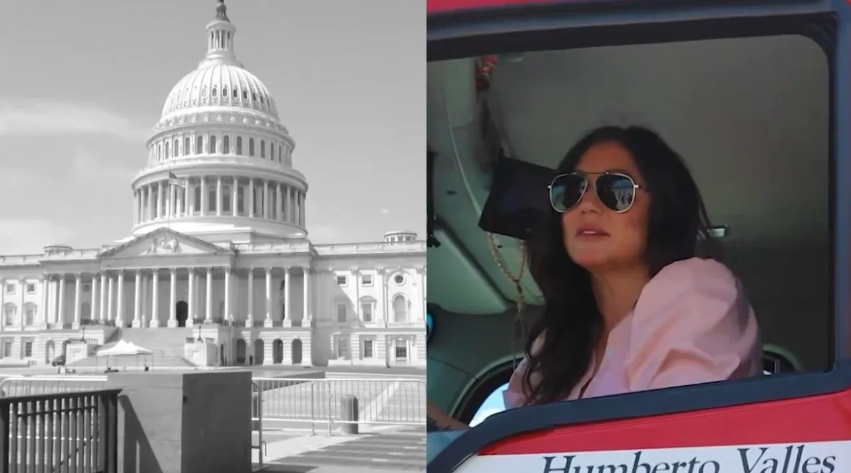Washington: The administration of U.S. President Donald Trump has released a controversial advertisement accusing companies of misusing the H-1B visa program by replacing young American workers with foreign employees, a majority of whom are Indians. The move follows the recent decision to increase the H-1B visa fee to $100,000.
The advertisement, issued under the Department of Labor’s supervision, claims that H-1B visa abuse is depriving American youth of employment opportunities. “Foreign workers are replacing American jobs, stealing the American Dream from young Americans. Under the leadership of President Trump and the Department of Labor, we are holding accountable the companies that misuse this visa and reclaiming the American Dream for U.S. citizens,” the ad stated. A visual graph included in the campaign indicated that nearly 72% of H-1B visas are issued to Indian professionals.
The Labor Department is concurrently conducting an audit named *Project Firewall* to detect irregularities within the visa system. The timing of the ad’s release, during the ongoing audit, has been viewed as a strategic move to reinforce the administration’s strict immigration policies and prevent American jobs from being filled by lower-paid foreign workers.
Young Americans have had the American Dream stolen from them, as jobs have been replaced by foreign workers due to rampant abuse of the H-1B visa.
Under @POTUS and @SecretaryLCD’s leadership, we’re holding companies accountable for their abuse—and recapturing the American Dream… pic.twitter.com/x3lqJS9CyG
— U.S. Department of Labor (@USDOL) October 30, 2025
Trump’s decision to raise visa fees and tighten regulations has drawn widespread criticism from industry leaders and lawmakers alike. Business groups and trade associations, including the U.S. Chamber of Commerce, have filed legal challenges against the move, arguing that it could hurt sectors dependent on skilled foreign talent.
Several members of Congress have also urged the President to reconsider his decision, cautioning that such restrictions could result in the loss of highly skilled international professionals who contribute significantly to the U.S. economy.






